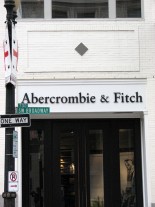 Important religious discrimination cases precedent set by the Supreme Court. Employers across the country should take notice of a Supreme Court decision handed down on June 1. The ruling, Equal Employment Opportunity Commission vs. Abercrombie & Fitch Stores, Inc., sets an important precedent regarding religious discrimination claims under Title VII of the Civil Rights Act of 1964.
Important religious discrimination cases precedent set by the Supreme Court. Employers across the country should take notice of a Supreme Court decision handed down on June 1. The ruling, Equal Employment Opportunity Commission vs. Abercrombie & Fitch Stores, Inc., sets an important precedent regarding religious discrimination claims under Title VII of the Civil Rights Act of 1964.
The Ruling
The case involves a Muslim woman who was denied a job at an Abercrombie & Fitch clothing store. She was deemed to be qualified, but was rejected because she wears a headscarf. The Abercrombie & Fitch management felt the headscarf would be in violation of the store’s “Looks Policy,” which dictates what employees may and may not wear. After she was rejected, the applicant filed a claim against the store, alleging that they failed to accommodate her religious practice.
The applicant won at trial in District Court, but the District Court’s decision was overturned by the U.S. Court of Appeals for the Tenth Circuit. The Court of Appeals ruled that because the woman did not inform the management of the store that she wears the headscarf for religious reasons – and thus management did not have “actual knowledge” of her need for religious accommodation – then management could not be liable for failing to accommodate her religious practices.
The Supreme Court disagreed. In a 7-2 opinion, authored by Justice Antonin Scalia, the Court overturned the Tenth Circuit’s decision. The opinion points out that Title VII focuses on an employer’s motives in religious discrimination cases, rather than the employer’s knowledge. Thus, if an employer suspects that an employee will need religious accommodation, and discriminates against the employee for that reason, then the employer’s actions can be in violation of Title VII – even though the employer did not have “actual knowledge” that the employee required accommodation.
What This Ruling Means for Employers
Since the ruling was handed down, there has been a lot of commentary regarding whether an employer like Abercrombie & Fitch should be required to accommodate an employee’s desire to wear a headscarf. However, the Supreme Court’s decision did not have any effect on what kind of religious practices are protected under Title VII – or what types of employers are bound by Title VII.
The issue that the Court ruled on was whether a plaintiff claiming religious discrimination can prevail in a disparate treatment claim if the employer was never notified of the plaintiff’s need for accommodation. (A disparate treatment claim involves an allegation that someone was the victim of discrimination based on their membership in a protected class – such as their religion.)
In light of this ruling, if an employee claims that an employer discriminated against him or her out of a desire to avoid accommodating the employee’s religious practices, the employee will not have to prove that the employer knew for a fact that he or she needed accommodations. If you are an employer, and you are unsure whether you are meeting the legal requirements for providing religious accommodations for your employees, the Santa Rosa employment and labor law attorneys at Beck Law P.C. can help. You can call or email our office today, and schedule a consultation.
